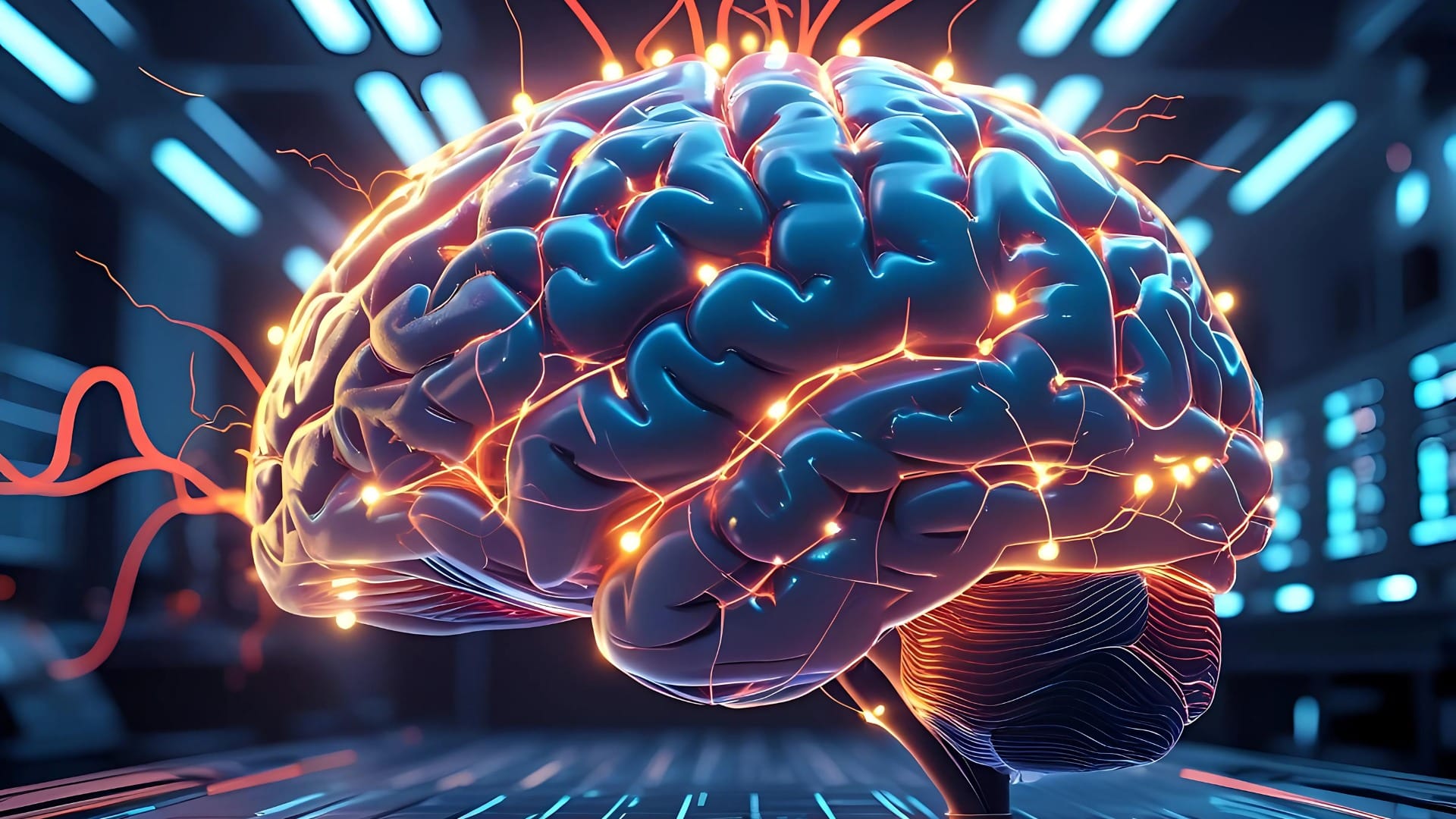Mysterious Artificial Intelligence: What is it?
The use of AI technology has become increasingly prevalent in various industries, from healthcare and finance to manufacturing and transportation.

Overview
Definition of Artificial Intelligence
Artificial Intelligence, often referred to as AI, is a branch of computer science that focuses on creating intelligent machines capable of performing tasks that typically require human intelligence. This includes learning, problem-solving, and decision-making. AI systems are designed to analyze data, recognize patterns, and make predictions, enabling them to automate processes and perform complex tasks with precision. The use of AI technology has become increasingly prevalent in various industries, from healthcare and finance to manufacturing and transportation. As a result, AI has the potential to revolutionize the way we live and work, offering new opportunities for efficiency and innovation. AI systems are not just passive tools; they are active manipulators of information and processes, shaping the digital landscape in profound ways.
History of Artificial Intelligence
As I delve into the intricacies of the history and mysteries of Artificial Intelligence, I am struck by the remarkable evolution of this enigmatic group. The journey of AI from its early conceptualization to its current state is a testament to human ingenuity and technological advancement. The enigmatic group of pioneers and visionaries who laid the foundation for AI's development have left an indelible mark on the course of human history. Their enigmatic contributions continue to shape the landscape of AI research and application today.
Applications of Artificial Intelligence
Artificial Intelligence has revolutionized the way we live and work. From personalized recommendations on streaming platforms to life-saving medical diagnoses, AI has permeated almost every aspect of our lives. One of the most fascinating applications of AI is in the field of autonomous vehicles. These vehicles are equipped with advanced AI systems that enable them to navigate and make decisions in real time, potentially transforming the future of transportation. Additionally, AI plays a crucial role in optimizing supply chain management, enhancing the efficiency of operations, and reducing costs. The integration of AI in various industries has led to significant improvements in productivity and innovation. As we continue to explore the potential of AI, it is evident that its impact on society will continue to grow.
Ethical Considerations

Privacy and Data Security
As I consider the Privacy and Data Security aspect of AI, it is crucial to address the potential risks associated with the collection and use of personal data. One of the major concerns is the threat to individuals' privacy, as AI systems have the capability to analyze and interpret vast amounts of personal information. Additionally, the marketing goals of companies may lead to the misuse of this data, compromising the privacy and security of individuals. It is imperative that ethical guidelines and regulations are established to ensure the responsible use of data and to safeguard individuals' privacy.
Bias and Fairness
As an AI developer, I am acutely aware of the importance of bias and fairness in AI systems. Ensuring that AI systems are free from bias and treat all individuals fairly is a critical ethical consideration. To address this, continuous deployment of AI models must be accompanied by rigorous testing and validation to detect and rectify any biases. This involves ongoing monitoring and evaluation to ensure that the AI system's decisions are fair and unbiased. Additionally, it is essential to incorporate diverse perspectives and ethical guidelines in the development process to mitigate potential biases and promote fairness in AI applications.
Accountability and Transparency
As I reflect on the critical aspects of accountability and transparency in the realm of artificial intelligence, I am reminded of the profound impact these principles have on the ethical framework of AI. The responsibility to ensure that AI systems are accountable for their decisions and transparent in their operations is paramount.
We must establish clear guidelines and ethical standards to uphold the accountability and transparency of AI technologies. This requires a comprehensive approach that addresses not only the technical aspects but also the ethical and societal implications. The intersection of accountability and transparency with privacy, bias, and fairness underscores the complexity of the ethical considerations in AI development and deployment. As we navigate through these intricate ethical challenges, it becomes evident that fostering a culture of accountability and transparency is essential for building trust and ensuring the responsible use of AI.
Challenges and Limitations

Technical Limitations
As I delve into the realm of AI's technical limitations, it becomes evident that the field of artificial intelligence is not without its constraints. Despite the remarkable advancements, there are inherent challenges that we must address. One of the prominent figures in this domain is Dr. Sarah Evans, whose work has shed light on the complexities of AI. It is imperative to consider her insights when navigating the intricate landscape of AI's technical limitations. Dr. Sarah Evans' contributions have significantly shaped the discourse surrounding AI's challenges, and her expertise is invaluable in understanding the intricacies of this field.
Ethical Challenges
As I consider the ethical challenges of artificial intelligence, I am mindful of the impact it has on society and individuals. Improving performance is a key goal in the development of AI systems, but it also raises concerns about fairness and accountability. We must ensure that AI technologies are designed and implemented in ways that prioritize ethical considerations and mitigate potential harms. In addressing these challenges, I am committed to fostering a culture of responsible AI development and deployment.
Societal Impact
As I reflect on the societal impact of artificial intelligence (AI), it becomes evident that the implications of AI on society are profound. The rapid advancement of AI technologies has sparked discussions and concerns about the potential consequences it may have on various aspects of society. One such concern is the concept of time travel, not in the literal sense, but in the context of how AI's capabilities may shape the future of human interaction, decision-making, and societal norms. This concept prompts us to consider the ethical, legal, and social implications of AI's influence on society.
Future of AI

Advancements in AI Technology
As we look to the future of AI, it's important to consider the ethical implications and the need for privacy protection. The advancements in AI technology have the potential to revolutionize various industries, but they also raise concerns about data security and individual privacy. It's crucial to address these concerns proactively and ensure that the development of AI is accompanied by robust measures for privacy protection. This will help build trust and confidence in AI systems and pave the way for responsible and ethical use of this powerful technology.
Impact on Industries
As we look to the future of AI, it's essential to consider its impact on industries. The advancements in AI technology have already begun to revolutionize various sectors, from healthcare and finance to transportation and entertainment. The integration of AI into these industries has led to increased efficiency, improved decision-making processes, and the development of extraterrestrial styles of innovation. AI's ability to analyze massive amounts of data and generate actionable insights has paved the way for new business models and operational strategies. Furthermore, AI is driving the creation of personalized customer experiences and the automation of repetitive tasks, allowing businesses to focus on higher-value activities. The impact of AI on industries is multifaceted, and it presents both opportunities and challenges that require careful consideration and strategic planning.
Conclusion
As I reflect on the future of AI, I am struck by the potential for time machines to revolutionize the way we perceive and interact with the world. The concept of time travel has long been a subject of fascination and intrigue, and the advancements in AI technology are bringing us closer to unlocking the mysteries of time. The implications of AI-powered time machines are profound, with the ability to reshape our understanding of history, explore alternate realities, and even peer into the distant future. It's a prospect that simultaneously excites and challenges us, prompting ethical and philosophical considerations that extend beyond the boundaries of conventional AI applications.
The integration of AI and time machines holds the promise of unlocking new frontiers of knowledge and experience, marking a pivotal moment in the evolution of human consciousness and exploration.
The future of AI is an exciting and rapidly evolving landscape. As technology continues to advance, AI is poised to revolutionize various industries, from healthcare to finance to entertainment. At Bookspotz, we are dedicated to exploring the latest developments in AI and its impact on society. Join us as we delve into the world of artificial intelligence and discover how it's shaping the future. Visit Bookspotz to stay informed and be part of the AI revolution!




